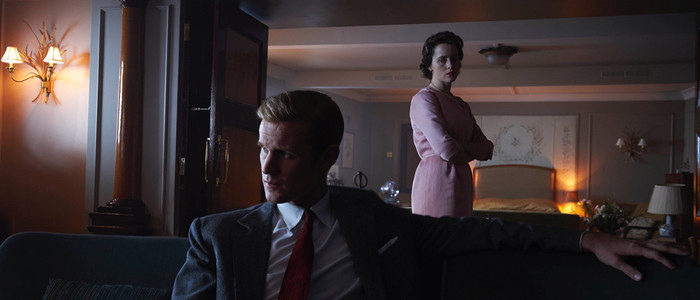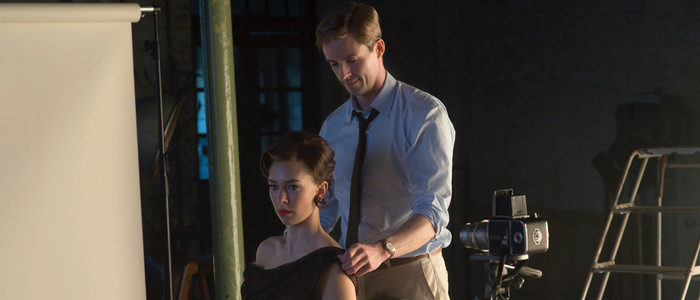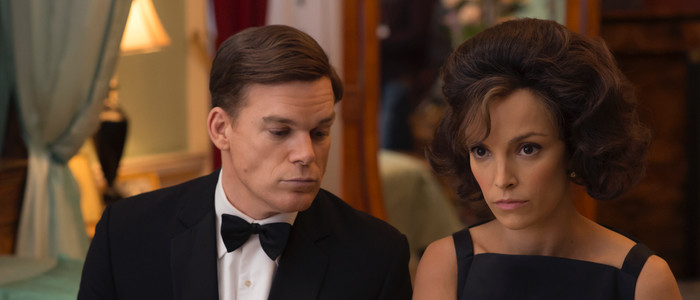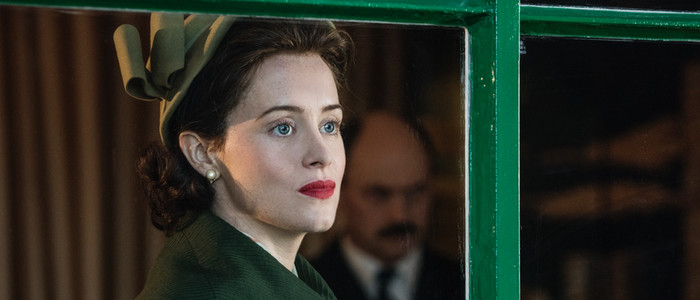'The Crown' Season 2 Review: Netflix's Royal Drama Is Better Than Ever
The Crown returns to Netflix for season 2 today, bringing with it a whole new era of scandal, romance, and royal intrigue. While it may not be the most action-packed shows to grace the streaming platform, it is one of the best: an old fashioned, admirably episodic costume drama with superb performances, intricate direction, and enough simmering, bottled-up righteous fury to keep you hooked from beginning to end (give or take an episode or two).Netflix's most ornate show returns for a gloriously melodramatic second season, lush with pageantry, marital strife, sexy romances, and only the briefest of cameos for John Lithgow's wonderfully over-the-top, make-up covered Churchill. Perhaps the most surprising thing about The Crown is the fact that it works at all. The show isn't exactly treading new ground, and amounts to little more than a costume drama, where thespians stand in well-lit rooms and smolder at each other. Yet gosh darn it, this show is highly engrossing. It's almost impossible not to get wrapped up in the drama and palace intrigue.The Crown season 2 covers nearly a decade in the early reign of Elizabeth II, played with perfect inflection and poise by Claire Foy. Winston Churchill is gone, and Elizabeth finds herself with an ever-rotating list of ineffectual Prime Ministers, one of which gets the country embroiled in the disastrous Suez Canal crisis. But The Crown isn't so much interested in affairs of state as it is affairs of the heart, and the central conflict present in season 2 is the tumultuous marriage of Elizabeth and Philip (Matt Smith). As season 2 kicks-off, we see Elizabeth and Philip at a reckoning point: Elizabeth is at her wits end regarding Philip's possible philandering, and Philip continues to feel inferior to his royal wife. The marital strife between Elizabeth and Philip plays a big part in season 2, but it's not the primary focus, which is refreshing. Instead, the series takes time to branch out and focus on many other characters, particularly Elizabeth's droll, suffering sister Margaret (Vanessa Kirby, the break-out star this season). And then there are the scandals, including the Profumo affair, a sex scandal that the show takes more than a few liberties with in order to tie it into the Elizabeth and Philip's relationship.The Crown deserves to be applauded for daring to be an adult drama, which are harder and harder to come by these days. Series writer and creator Peter Morgan, with his background in playwriting, manages to make stagey, showy verbal jousts exciting again. The Crown is like great theater, but it looks, feels and moves like great cinema. That's a hard combination to pull-off, yet season 2 of The Crown makes it look easy.Here are four key takeaways from The Crown season 2, which debuts on Netflix Friday.
It’s The Most Episodic Netflix Show - And That’s A Good Thing
Here is the most commendable element of The Crown: it's the most episodic show Netflix has. Netflix (and others) have adopted the "TV as a movie" method, often with less-than-desirable results. Which is to say, rather than tackle their TV shows like TV shows, telling episodic stories from episode to episode that eventually come together into one overarching narrative, they instead take on plotline and stretch it out for approximately 10 hours.This is torturous. And not how TV should work.Which is what makes The Crown so refreshing. The show is firmly, unapologetically, traditionally episodic, with each episode telling a self-contained narrative – almost as if the season as a whole were a book of short stories that feature similar characters. Mad Men employed a similar narrative method, and there are moments where The Crown feels like the true natural successor to that show (though it's never quite as good as Mad Men). As a result, The Crown never overstays its welcome, unlike several other Netflix shows (I'm looking at you, The Punisher).Best of all, while the show remains episodic, it does continue to set-up information and themes that eventually tie together by the close of the season. Again, this isn't ground-breaking: most TV shows have done this for decades. It's only been recently that showrunners have adopted the "TV as one long movie" approach. But The Crown deserves credit for ignoring this trend and sticking to more old fashioned methods. This is slightly ironic, however, since one of the plotlines of season 2 revolves around Elizabeth and the rest of the monarchy struggling to buck stodgy tradition to better adapt to a more modern world.
The Rest of The Royal Family Steps Into the Spotlight
While The Crown may be Claire Foy's (and Elizabeth's) show, the supporting cast gets a big leg-up in season 2. Elizabeth's sister, Princess Margaret (Vanessa Kirby) is still bitter that she had to call off her relationship with Peter Townsend due to royal family meddling, and she goes about her nights and days in a drunken, cigarette-smoke infused haze. Her romantic life takes a surprising turn when she meets carefree, seductive photographer Antony Armstrong-Jones (Matthew Goode, channelling David Hemmings' character and performance from Michelangelo Antonioni's Blow-Up). Armstrong-Jones is the first outsider in Margaret's life who doesn't treat her like royalty, and she finds herself drawn to that. Kirby and Goode have a palpable chemistry with one another, and their whirlwind romance blossoming into something more provides season 2 with some tantalizing moments. It also gives Kirby plenty of room to shine, which is wonderful, as she continually gives a deliciously droll, sometimes even downright wicked performance. I'm assuming like Foy, Kirby will also be replaced with a new actress in season 3 (see below), which is a shame, as season 2 proved that the show could do with a lot more of her.The other supporting character who receives much more attention this time around is Matt Smith's bitter Prince Philip. The season tiptoes around his possible philandering – we assume it's happening, but it's never expressly said so. More than that, however, it attempts to delve into Philip's character by exploring his backstory. Unfortunately, this results in one of the least interesting episodes of the new season. Through an episode-long flashback, we see Philip's days at a cruel, militaristic boarding school. Philip hated the school, yet he believes that the horrible conditions there build good character, which is why he's so keen to send his son Charles there. Charles, understandably, does not want to go. There are some powerful dramatic moments in this episode, and one haunting, unforgettable scene set during a funeral parade for members of Philip's family, yet this episode feels out of place among the season as a whole. The only moment that truly resonates is an on-screen caption near the end that reveals that while Charles may have been forced to attend the school, he made sure to send his own children, William and Harry, elsewhere.Alex Jennings' David, Duke of Windsor – the former king who abdicated due to his marriage to American Wallis Simpson – also returns for a chilling episode that delves into the character's Nazi connections (and sympathies) during World War II. Jennings' smug, holier-than-thou performance is pitch-perfect when contrasted against his character's more nefarious deeds. His episode is a highlight of the season.
JFK and Jackie Kennedy Show Up, as Does Billy Graham
The Crown season 2 nears its end around 1963, which means it couldn't get away with ignoring John F. Kennedy, Jackie Kennedy and the age of Camelot. The Kennedys are not portrayed in the most flattering of light, even though the episode they feature in is certainly sympathetic towards Jackie.While the idea of American "royalty" the Kennedys clashing with real-life royalty should make for some juicy drama, the episode featuring the Kennedys is sadly a bit of dud. This is primarily an issue of casting. Michael C. Hall, of Dexter fame, plays JFK, and he makes the tragic mistake of going all-in on Kennedy's famous New England accent. Almost no actor has ever been able to make that accent work on screen, and Hall's is one of the worst examples of the bunch. He plays JFK as a bit of a clueless creep, perfectly fine with using his wife for political means. That's fine; no one is going to claim Kennedy was a saint. But Hall's performance is too cartoonish; like something out of a comic book. It doesn't fit with the show as a whole. Perhaps the case could be made that since JFK was an American clashing with the rigidity of the UK it makes sense that he seems out of place, but I think that's giving Hall, and the show, too much credit.Jodi Balfour, as Jackie Kennedy, doesn't fare much better. Her performance is a bit better than Hall's – more subtle, more believable. But Balfour also goes all-in on her character's accent. Natalie Portman was mocked in some circles for her spot-on imitation of the real Jackie Kennedy's voice in Jackie, but here Balfour sounds as if she's doing an impression of Portman doing an impression of herself playing Jackie. It's distracting. The drama that unfolds, with Elizabeth having a nice meeting with Jackie only to find out that Jackie turned around and ridiculed her at a party, unfolds with a sincere empathy, but it's not quite enough to make up for those out-of-place performances.The other big American guest star of season 2 is Christian Evangelist Billy Graham, played by Boardwalk Empire and House of Cards actor Paul Sparks and his great head of hair. Graham appears in the aforementioned episode involving the Duke of Windsor. I won't delve into Graham's background and his belief system, but I was curious when I heard of his involvement in the season. "The Billy Graham episode is about Elizabeth wanting to deepen her Christianity," creator Peter Morgan told Vanity Fair. "She stops reflecting on forgiveness as a central tenant of Christianity at precisely the time that she's asked whether she can or can't forgive her uncle for what he did." Anyone worried that The Crown might grow too religious (as I admit I briefly did) can relax. The fact of the matter is that Graham's appearance is a very minor one, which is a pity because Sparks is typically a scene-stealing actor who probably could've done a lot more with the part had he been given the chance.
It Marks The End of Claire Foy’s Reign
Bad news for Claire Foy fans: The Crown season 2 marks the end of her reign as Queen Elizabeth II. Seasons 3 and 4 will have Broadchurch's Olivia Colman playing Elizabeth as the queen's age advances. The basic plan is for each season of The Crown to cover approximately ten years in Elizabeth's reign. The end of season 2 will mark about 20 years, which means it's time for her to advance in age a bit. Indeed, one of the themes in season 2 involves Elizabeth beginning to feel older, and less youthful, especially when she comes face to face with the glamorous, young Jacqueline Kennedy.It will be sad to see Foy go, as she's truly sensational in the part, even more so in season 2 than season 1. Season 2 finds Foy completely in tune with the role, wearing her fictional royalty like a second skin. That said, Colman is a wonderful actress, and it will be exciting to see her take on the character in upcoming seasons. I had wondered if the final episode of season 2 would feature Colman in some capacity, to set viewers up for her inevitable arrival in season 3, but no; she remains unseen.Of course, this doesn't necessarily mean Foy will be departing the show forever. She could always return in some sort of flashback. Flashbacks feature heavily into season 2; in fact, there's an entire episode that's set in a flashback. In addition to that, both John Lithgow, as Winston Churchill, and Jared Harris, as King George VI, appear in a brief flashback in season 2, even though both of their characters are dead within the current timeline of the show. I wouldn't be surprised to see Foy return for a cameo or two, schedule permitting.The Crown season 2 is streaming now.
